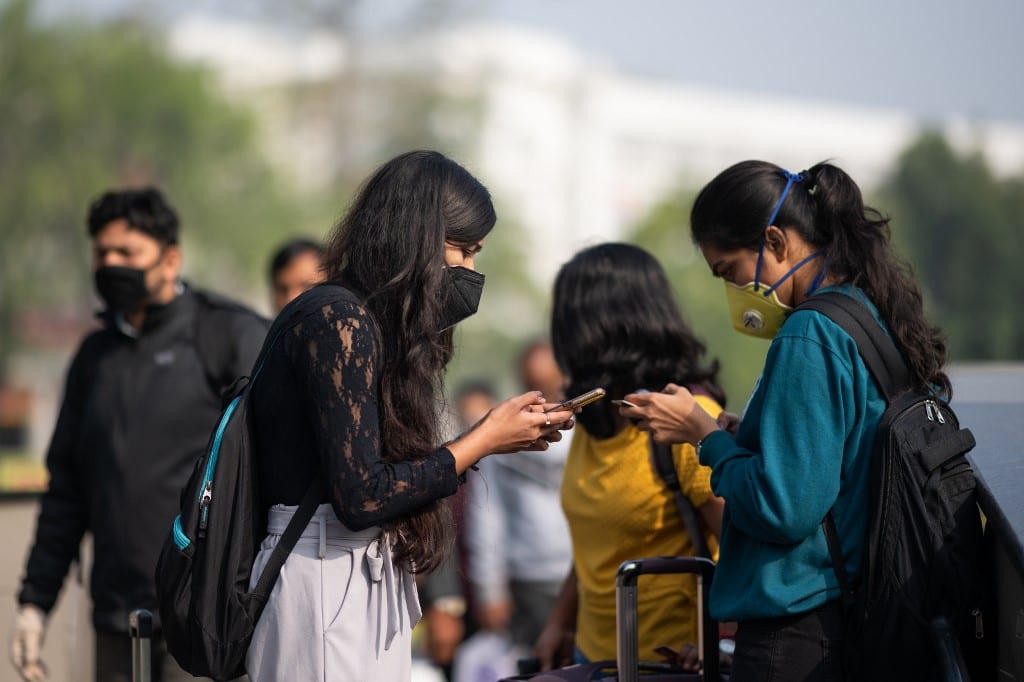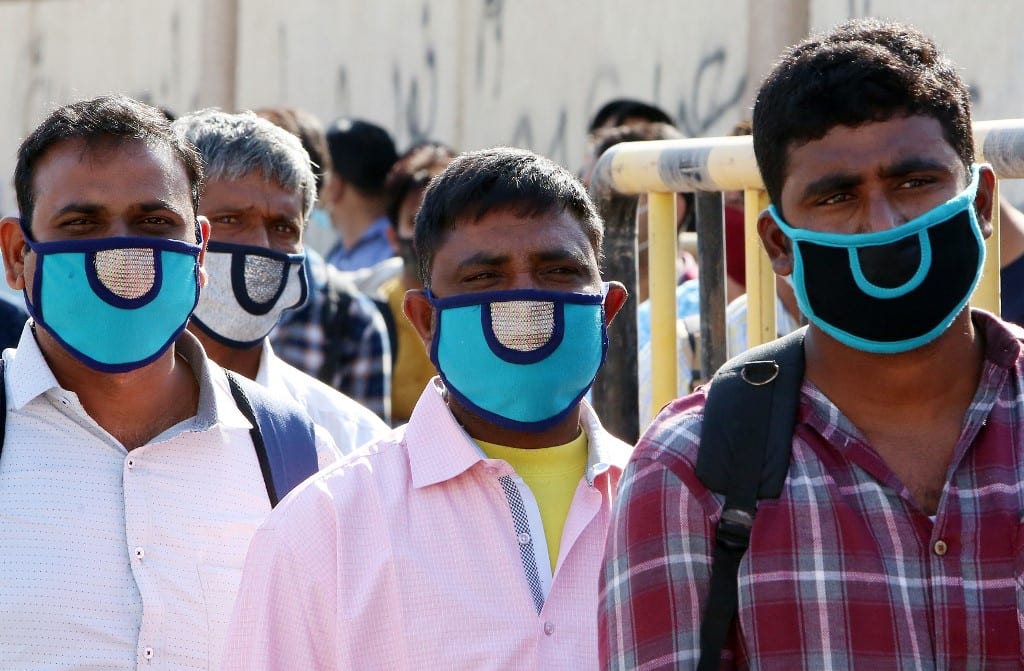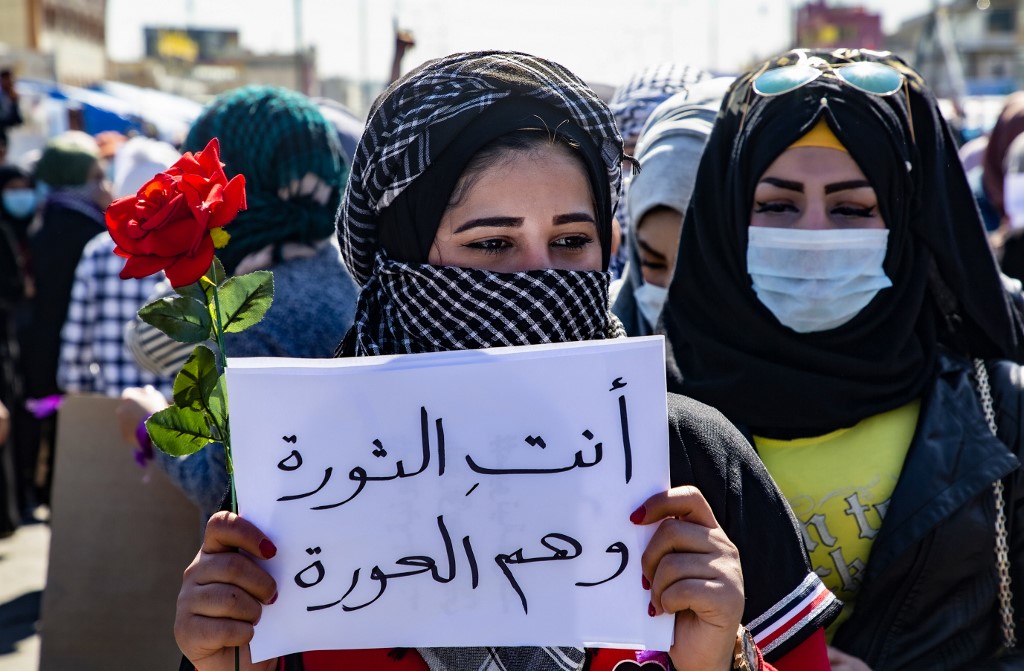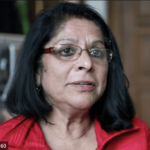May 8, 2020, commemorated seventy-five years of the defeat of fascism and the end of World War II. A friend here in Germany messaged me that this was day had special significance for Germans; it was a day of liberation, it brought an end to national socialism, and an end to the systematic slaughter of six million European Jews.
I had to agree while reminding her that this day could not be claimed for one country or one part of the world but that this day held a significance far beyond provincial Europe. Claiming the defeat of fascism for Europe merely serves to bolster the already hyper-mythical narrative of European (and American) civilisation as conquerors of despotism and protectors of democracy in the 20th and 21st century whereas our histories show otherwise.

Soldiers from Africa and Asia, especially from the Indian subcontinent, fought alongside the Allied troops and died in great numbers during this war. It is significant for all of us because without this day freedom would not have come to us the colonised people before the decade of the 1940s was at an end.
Without this day the partitioning of Africa among the European colonial powers in the early part of the last century would not have unravelled in the 1960s and ‘70s decades, as Africans yearned for freedom. Without this day the idea of freedom, democracy and secularism would not have been implanted in our national imagination in India, a legacy that I inherited being part of the first generation of the new India.
Freedom came at a huge price to the countries under European colonialism. India was partitioned in two in 1947 resulting in 2 million people dead, 14 million people displaced and has faced the consequences of that cataclysmic moment ever since. In the same year a resolution to Partition Palestine into two states was taken in the newly formed United Nations general Assembly, displacing millions and opening a wound that lingers on and has kept Palestine in perpetual bondage.
Our democratic futures are in jeopardy as repression, lack of freedoms and growing surveillance of our actions in the name of protecting us from the virus, become the new normal. That is why while we are in lockdown we have to do everything within our power to amplify the voices of resistance wherever we are.
I could go on about the dreadful birth pangs of most of the countries under the colonial yoke. By the nineteen sixties the Cold War was upon us which meant that newly established countries in north and sub Saharan Africa were constantly under threat of destabilization as the west, on the one hand, and the eastern bloc on the other, fought to bring newly independent countries under their control.
Those of us who lived this history cannot forget the assassination of Patrice Lumumba in 1961, the national leader who fought for independence and was the first elected prime minister of the Republic of Congo, because he sought support from the socialist bloc when his appeals to the UN and the US for help against an army coup remained unanswered. And we know what has happened to the Congo ever since.
Lumumba was not the only one to be sacrificed; many leaders of the newly independent countries in Africa met with a similar fate. The end of European colonial rule in Africa was not till the 1990s when South Africa gained independence.
And so, what has this got to do with the pandemic across the world that has kept our lives in suspension for the last six weeks and threatens to extend for another at least two weeks more? For one thing unless we know where we came from, we will certainly never know where we should be going. The Covid-19 epidemic has been already turned into a ‘health issue’ that can be technically managed by health experts and firmly administered by strong states demanding complete obedience. Somewhere along the line democracy, freedom and the rights of ordinary citizens has, in many places, been postponed and is on the way to being forgotten.


The epidemic has made sure that most of us are at home and trying to limit our daily physical proximity to others outside the immediate family so as to slow down the spread of the virus. But that is where the commonality ends because there are various forms of state imposed lockdowns and different modes of policing the regulations ranging from checks, advise, fines, police patrolling the streets, to downright violent and coercive methods directed not only at those who transgress the rules, but also those whom the regime in power does not think worthy of being given the respect of being rights holding citizens.
One of my favorite photographs was that of a woman demonstrator in Iraq holding aloft a banner which said, “Separating religion from the state is much better than separating women and men”.
There is also simultaneously absolute and utter disregard for the abject misery and existential crisis of the millions of poor people whose daily lives in any case is a constant struggle against insecurity, hunger and want. The epidemic has revealed how the default position of many states is the authoritarian one. It has also revealed the cruelty of 21stcentury capitalism consolidated on the backs of the poor and vulnerable.
Several news items last week bore testimony to an ever-increasing autocratic tendency of states and of sheer cruelty perpetrated on the people. As always India stands out as the country that is causing grave harm to its citizens. Four hundred and fifty million people who migrate internally in India to find work have, as a result of the sudden shut down, been stranded out in the open while millions have tried to find their way back to their villages.
The Indian newspapers reported two days ago that a group of sixteen such workers sleeping near a railway track on their way for hundreds of kilometres back to their homes, were run over by a goods train. Passenger trains that could have got them (and millions of others) safely to their destination have been stopped since the lockdown by the government! And this from a government that spent millions flying their citizens back from foreign lands. The difference was that the 450 million people are poor people and the others the sons and daughters of the middle class.


India is not alone. I heard a news item on Kenya on BBC World Service that reported the eviction of thousands of people from a poor settlement in Nairobi even as lockdown continues. Mothers with young children and entire families were left homeless and scared because they face penalties if they do not abide by the lockdown rules. Apparently, the lockdown was being used to undertake slum clearance (apparently on the behest of landowners) with maximum efficiency since nobody could intervene to support these poor people.
Armed with emergency powers many governments have incarcerated activists, scholars, journalists who had before the lockdown and during it posed difficult questions. A news item in the progressive and largely independent online newspaper from India, The Wire, reported on an open letter calling for solidarity and signed by 1100 feminists in India condemning the targeted crackdown on Muslims and women activists in Delhi who had been visible in the protests against the Citizenship Amendment Act. This in the time when the Covid-19 epidemic rages on and India, like everywhere else, is in lockdown. The photograph on the article cover was of Safoora Zargar, a key activist of the movement, and who was pregnant at the time of her arrest. Similarly, on the other side of the word in Chile where since October 2019 student protests evolved into a people’s rebellion against the state, the pandemic has allowed for use of sweeping emergency powers to lock up and contain what had become a huge tide overwhelming the power of the state.
Conversations About Change
Here in the west the talk is of change, change in the neoliberal global infrastructure that has been directly and indirectly responsible (because of decades long systematic cutting down of public goods and the role of the state in providing for its citizens) for incapacitating states in handling the crisis. The emaciated health system in the United States, emaciated by decades long lack of public investment in health and care infrastructure, has brought misery and death to thousands in the richest country in the world. Similarly, in Britain which had one of the best health care systems in Europe, the death toll has been one of the highest as a run-down public social care infrastructure found it difficult to cope with the burden of morbidity among older people.
In a conversation between Greece’s former finance minister Yani Varoufakis and Irish Economist David McWilliams (reported in The Guardian, May 6, 2020) hope was expressed for a global new deal. They saw hopeful signs in that the state was (in Europe and US) coming back in to regulate social goods and intervene in the economy; states in Europe have increased public spending to mitigate the crisis and also borrowed heavily. However, these hopeful signs while indicating a suspension of the rules of capitalism did not connote a change in the institutions of finance and capital. For that to happen member states would have to reimagine what the economy should look like if it is to benefit their citizens equally, and not just the banks. And that goes too for the international financial institutions; change does not come automatically, there has to be agency. Capital markets do not have a will of their own no matter how the institutions of finance, politics and development have tried to rarefy markets in today’s world and invest it with agency. Agency belongs to human actors.
Freedom and democracy are not givens for all time; these are resources that have to be renewed at every juncture by our actions, and struggles. In the present and even before the advent of this pandemic, freedom and democracy was in crisis all over the world as right wing, populist regimes and their nationalist rhetoric bordering on the fascistic, were on the rise internationally. This wave of right-wing populism has firmly ensconced illiberal heads of states in countries both east and west, north and south. But the longing for freedom and democracy has not gone away in these seventy-five years. Its opponents may have increased manifold but so have the calls for human freedoms and democracy. From Chile to Colombia, from Lebanon to Iraq and India the calls for change have grown louder since October 2019 till in March this year when the imposition of lockdowns brought a temporary halt to these massive movements.


October Revolutions
‘A friend from Santiago in Chile sent me this picture where he wrote: “no it is not an economic collapse crisis but a capital crisis… from Beirut to Santiago”’ (from Lina Abou-Habib’s Facebook page on 8th February)[i]. What began in Chile in October 2019 as a student protest against fare hikes on the metro, transformed in the month of October into a nationwide uprising demanding dramatic changes to the country’s economic and political system. I first read about the nation-wide uprising in October itself but no sooner had the significance begun to sink in than I was besieged by a deluge of news of what later came to be known as the October revolution in Lebanon. Thanks to Lina, my long-term friend from Beirut, I have been able to follow it closely marvelling at the forms of organizing, the multiplicity of voices and the sheer persistence of the movements. In the same region was also Iraq and they too called their uprising, the biggest since the US-led invasion, the October revolution and which I began to read about. And of course, there was Colombia in South America where my friend Sandra lives and I visited in 2018, and many other countries where there were outpourings of citizen demands for change in the systems that privilege the few and oppress the many.
What were they demanding? In Chile the message was clear – transformation and not merely change of systems, governance, politics and financial institutions to reflect equality, democracy and respect for human rights. A similar message echoed throughout these movements from one corner of the world to another although the immediate context and issues varied.
In Lebanon the immediate provocation was a massive banking crisis in 2019 which meant that ordinary people could not even access their accounts to withdraw money for daily living, only the rich could. The protests which first erupted on 17 October 2019 persisted for months and have recently revived and has demanded transformation to benefit all. The underlying issues highlighted by the people and as well reported by the international media was public anger at the high levels of corruption in government and Lebanon’s dysfunction and mismanagement.
The revolution opposed the country’s sectarian political system which allocates political authority based on religious affiliation; Lebanon being a mosaic of 18 different religious sects. First established at the time of decolonization, its present avatar reaches back to the end of the civil war and the agreement reached in 1989. This system is exploited by Lebanese politicians, many of whom were sectarian warlords of the civil war, to divide up power between them and escape accountability.
On the eve of the formation of a new government on the old basis of sectarianism a post in Lina’s Facebook was: ‘As a group that stands for social justice, we refuse that this government be given parliamentary confidence and reiterate our unwavering demand for an independent, non-sectarian government that works to salvage the economic situation in favor of the people, and not in favor of the oligarchy that compose 1% of the Lebanese population’ (Facebook post 9 Feb 2020).


In Iraq ongoing series of protests, that consisted of demonstrations, marches, sit-ins and civil disobedience, started on 1 October 2019, a date which was set by civil activists on social media, spreading over the central and southern provinces to protest corruption, unemployment and inefficient public services. The protest then escalated into full-scale calls to overthrow the administration.
In Colombia began on 21 November 2019 and in which thousands of Colombians from all sorts of backgrounds participated. The demonstrations were protesting the harsh economic and political reforms proposed by the government and in favour of the Colombian peace process.
Although mostly peaceful the protests have in some places been violent, not because of the protesters necessarily but often organised by agent provocateurs and the forces of law and order. Especially violent were the attacks on demonstrators in Chile and Iraq. In Colombia violent mobs, who Sandra said had nothing to do with the protesters, took over the peaceful demonstrations. The persistence of these movements even in the lockdown have been remarkable. On 21 April protests returned to the streets of Beirut in a new form in keeping with lockdown rules regarding distancing; they came in large car convoys, gathering around the complex where the MPs convened to pass several laws that day. They waved Lebanon’s flag, and donned masks and hand gloves to signify that they were together in the fight against the virus and their damaged political system.
From Santiago to Beirut
From Santiago to Beirut movements sought connections or rather recognized connections. The person quoted above who posted the Santiago to Beirut message also said in her post: “The graffiteros don’t even know how to place Lebanon on a map!!, or what’s going on there. I found the association surprising. The Lebanese crisis is above all the crisis of wild capitalism. C capitalism, in its mafia version, has led us so far”. On the same day as this appeared was another which said, “here is a graffiti seen today on the wall of Mar Maroun church in downtown Beirut that makes the link between Lebanon and Chile. The Revolution of Lebanon quotes Chile Revolution on the wall of the church of Mar”.
The movements have generated a huge outpouring of cultural work that has acted as a cement to create new and shared meanings of what people want to be and which way they want to go. The posters, slogans and photographs have been iconic. One of my favourites was of a woman demonstrator in Iraq holding aloft a banner which said, “Separating religion from the state is much better than separating women and men”. This came after the clergy were calling for women and men to be separated during the demonstrations!
Women and Transgender People
Women, transgender people and others with non-conformist sexual orientation have been the prominent face of these movements. Melisa Medina, aged 25, from Chile said: “My grandmother fought against the dictatorship; my mother fought in her time; I am the mother of a six-year-old girl and now it’s my turn to protest. We want long-term changes that I hope she will enjoy in 20 years” (The Guardian, International edition, 30 Oct. 2019). Rana from Lebanon talking about the revolution insisted, “Some say that homophobia has nothing to do with the revolution, there is no space for everything. But we want to talk about everything now. If we don’t make our voices heard now, we won’t be able to speak up later” (video Rasha Younus[ii]).
Which then is echoed by Tammy Cabezas, aged 21 from Chile, “I came out to represent trans people. The average life expectancy of a trans person in Chile is 35 and demands that many are fighting for – like a decent pension – we can’t even dream of that. We are protesting because without a sexual revolution there is no social revolution” (The Guardian, International edition 30 Oct. 2019).
“I want to be treated as a human being whether I am a refugee, whether I am transgender. The important thing is that I have rights and I want to claim them” (Maya from Lebanon from video by Rasha Younus).
The revolution is postponed because of the epidemic, but it’s not over. The longing for freedom and democracy will reassert itself but it will not do so automatically. Unless the longing reasserts itself our democratic futures are in jeopardy as repression, lack of freedoms and growing surveillance of our actions in the name of protecting us from the virus, become the new normal. That is why while we are in lockdown we have to do everything within our power to amplify the voices of resistance wherever we are.






